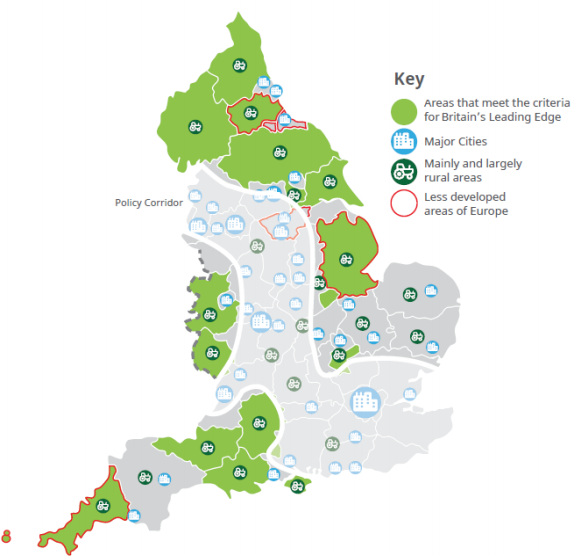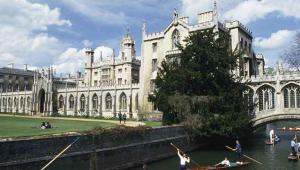Britain’s Leading Edge – a coalition of local councils and MPs from across England – claims that the majority of public funding and investment decisions go in favour of a “policy corridor” that neglects rural regions.
A new report released by the coalition today states that some six million people live in areas repesented by the coalition, which make up 44% of England’s landmass.
These areas generate 37% of renewable energy. They also contribute 8% gross value added each year, which is equal to that of England’s ‘core cities’ of Birmingham, Bristol, Leeds, Liverpool, Manchester, Newcastle, Nottingham and Sheffield.
It also highlights “cold spots” for household income growth for many of the six million people living in peripheral rural areas without a major city.
Median earnings in these areas are around £2,600 less than the England average, the report said.

The new coalition includes Cornwall Council, Cumbria County Council, Dorset Council, Durham County Council, East Riding of Yorkshire Council, Herefordshire Council, Council of the Isles of Scilly, Isle of Wight Council, Lincolnshire County Council, North Yorkshire County Council, Rutland County Council, Shropshire Council.
Sarah Newton, MP for Truro and Falmouth, said: “Failing to invest in Britain’s Leading Edge areas means missed opportunities to build resilient local economies and communities.”
She added: “At a time of deep economic uncertainty, the next government should be focussed on harnessing the strengths of all areas, unleashing their potential – not just those with major cities. As we develop local industrial strategies, no one should be left behind.”
Adam Paynter, deputy leader of Cornwall Council, commented: “For too long the ‘policy corridor’ has excluded broad swathes of the country from fair access to opportunity.”
Britain’s Leading Edge seeks to give neglected areas “fuller access to opportunities to thrive form industrial and devolution policy and public service reform.” he said.
Carl Les, leader of North Yorkshire County Council, said: “Rural regions have the potential to be economic powerhouses in their own right. The twelve rural and peripheral authorities represented by Britain’s Leading Edge quite literally help keep the lights on and feed our nation through their rich natural resources and through innovation in food and renewable technology.”











